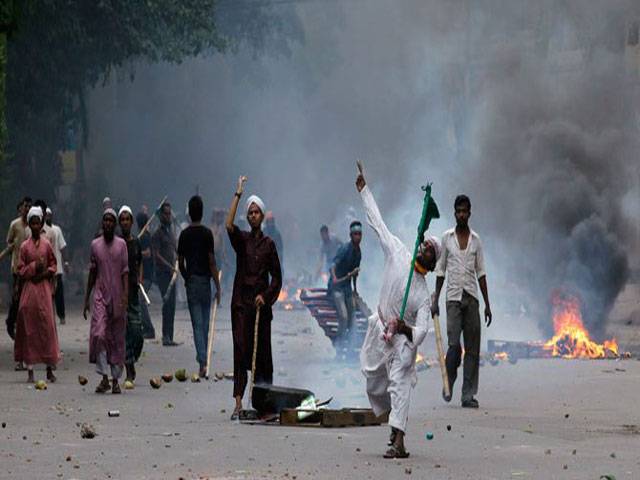DHAKA: Schools and businesses were closed on Wednesday as a nationwide strike called byBangladesh’s opposition over the killings of Islamists in a police crackdown brought large parts of the country to a halt.
Security was tight in the capitalDhakawith thousands of policemen on patrol.Dhakaroads and inter-city motorways were empty as bus and lorry operators suspended their services.
Protesters hurled three small homemade bombs inDhaka’s Tejgaon district, but nobody was injured, local police chief Mohammad Moniruzzaman told AFP.
The main opposition Bangladesh Nationalist Party (BNP) and its Islamist allies called the two-day shutdown to protest what they called the “mass killing” of hardliners from the Hefajat-e-Islam (Protectorate of Islam) organisation in a crackdown by security forces.
According to an AFP tally compiled after talking to police and medical sources, 38 people have been killed since Sunday afternoon when police first confronted tens of thousands of Islamists who had blockaded the capital.
The country’s most prominent daily, Prothom Alo, said at least 49 people have died in the clashes, some of the fiercest street violence in decades.
However, the BNP says the real number of dead runs into the “hundreds”, accusing the authorities of concealing bodies but without giving any evidence.
Dhaka Metropolitan Police dismissed the claim of mass killing Wednesday, saying they used “non-lethal weapons” during the early Monday morning crackdown and only “11 bodies were recovered in the day-long clashes”.
The London-based rights group Amnesty International has called for “an independent and impartial investigation into police use of force” after it said its own investigations had found at least 44 people died in the clashes.
“There is considerable confusion about what really happened, and why the deaths occurred,” said Polly Truscott, Amnesty’s deputy regional director.
“There must urgently be an immediate independent and impartial investigation into the events, including the police use of force. The perpetrators must be brought to justice.”
The protest by Hefajat, which draws support from madrassas (Islamic schools), was another sign of the divide between Islamists and the secular government after the deaths of around 100 people earlier this year in violence linked to war crimes trials.






